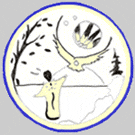| |
CopyRIGHT and other RIGHTS
The Internet is a technological highway to a fast-paced new world of ideas and information. With a couple of clicks of the mouse, you can go anywhere: to online dictionaries, where words, old or new, can be defined in moments; to the latest in cutting-edge research on practically any topic; to blogs where urgent social issues are being debated. Possibilities seem limitless, or so we would like to believe. In fact, it is often difficult to get access to resources online. There are people out there who want to limit access or prohibit it altogether, unless of course you cross their palms with silver. They often claim to own ideas or the expression of them, and use cyber-bullying and other dubious tactics to push their agendas. If they have enough money, position, or political power, they can even defy the law or remake it to suit their purposes. As educators in a technological age, we must resist.
One of the tactics of the Internet Control Freaks is to spread disinformation about what you can and cannot do online. This site is designed to inform you about your Internet rights and the copyright rules underlying them. Here are a few guidelines.
Copyright Guidelines for Teachers:
Often teachers are reluctant to encourage their students to download anything from the Internet in the mistaken notion that everything there is copyright protected. In fact, there is much that is freely available either wholly or in part.
- If an original work is in the public domain, it is no longer under copyright protection. It belongs to everybody. According to the Canadian Copyright Act, copyright lasts during the lifetime of the creator plus fifty years. In other words, any archival photograph, painting or print information whose creator died 50 years ago, is no longer under copyright protection. All can freely use it any way they see fit. For photographs, anything created before 1948 is in the public domain, regardless if the creator is alive or dead.
- The Copyright Act allows the reproduction of portions of an original work under copyright protection for educational purposes, according to the principal of fair dealing. This means that educators and their students can make single copies of portions of original works for the purpose of personal study. They can also quote or paraphrase sections of the work in their own creations, providing, of course, that they acknowledge their source in footnotes or endnotes, and in the bibliography.
- If an original work is under copyright protection, its creator may allow additional reproduction uses for educational purposes beyond those allowed under fair dealing. One should always check to see what the allowances are.
Outside Links for Further Information:
- Teachers, please ensure that your students are knowledgeable about copyright law and the Internet. The New York Times website provides a lesson plan on this topic. This lesson can be adapted for use with Grades 6-8 and 9-12. It is based on United States examples, but the problems are similar in Canada. The lesson is supplemented by Robert S. Boynton's article,The Tyranny of Copyright (January 2004), which does an excellent job of documenting the main issues surrounding copyright and the Internet today. Even if you do not use the lesson material itself, this article is current and well worth the read.
- For more information, see the Canadian Copyright Act.
Return to Top
Copyright Guidelines for Students:
- A CBC report entitled Downloading Music (1 May 2006) provides information on the consumer's right to download music off the Internet.
Return to Top
Guidelines for Parents:
- See the Canadian Copyright Act.
Links for Further Information:
The Internet and copyright. See:
- Copyright and the Web
- Media Release by the Association of Universities and Colleges of Canada.
- Michael Geist's blog
- MP's Get Not-So-Straight-Talk on Copyright
Last updated : 10 July 2007
Return to
Orientation

This work is licensed under a
Creative Commons Attribution-Noncommercial
-Share Alike 2.5 Canada License.
|
![]()









